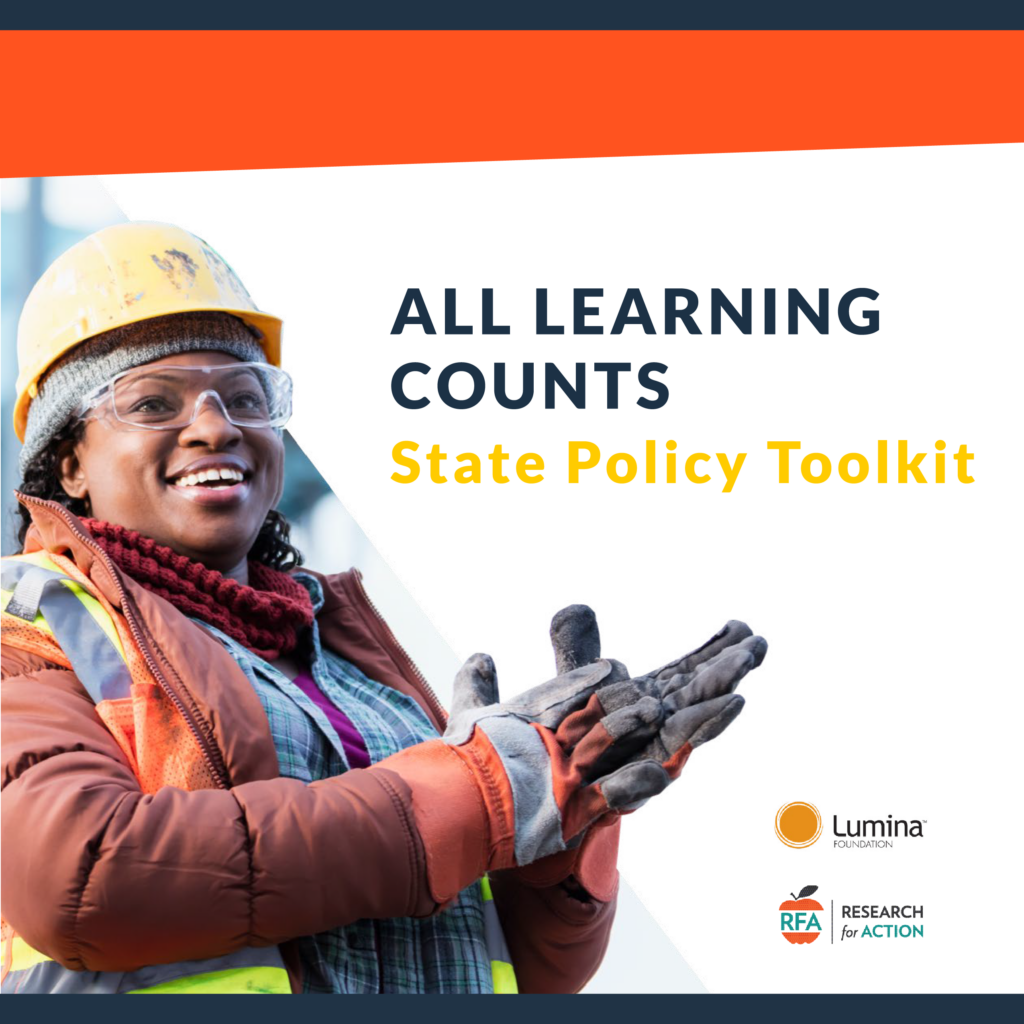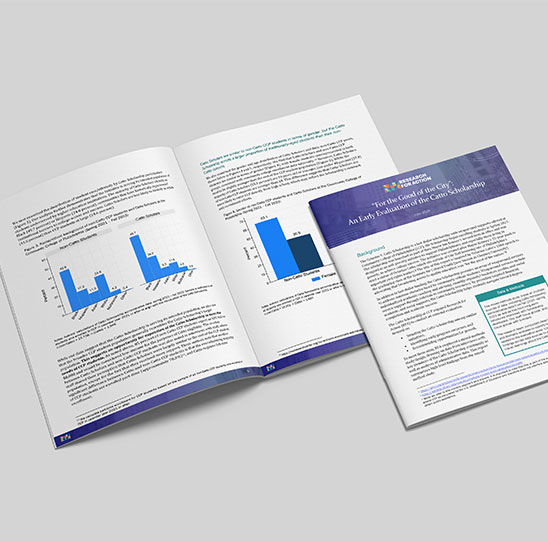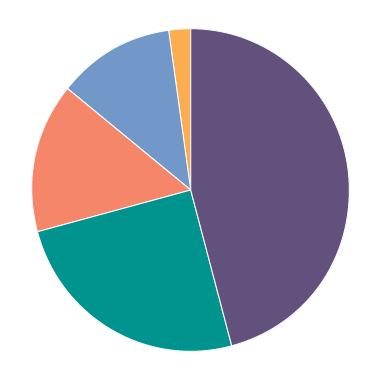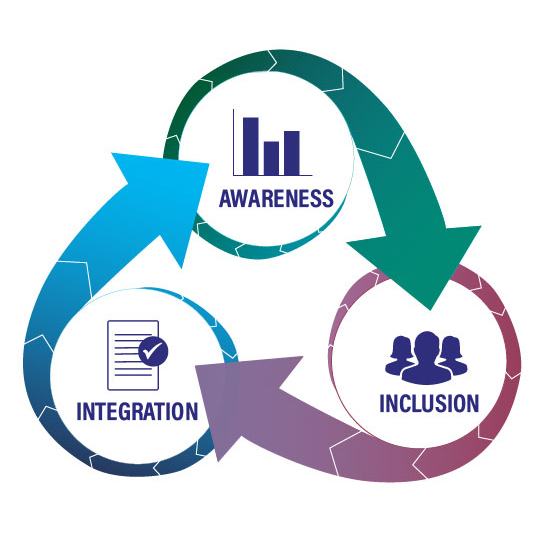Associated Project
Abstract
Every year millions of Americans gain valuable college credit-worthy learning through workplace training, the military, apprenticeships, & professional certifications. Nearly all of this learning goes unrecognized by colleges & universities. Without a consistent way to recognize, reward, and transfer this learning, many people are left with postsecondary-level skills and abilities but no credit to show for it. The shortcomings of our current system disproportionately affect individuals whose learning occurs in a variety of non-classroom settings. Most degree and credential pathways reward traditional in-class learning, privileging students who take more traditional paths while reinforcing barriers for those historically not well served by postsecondary institutions. The result is persistent inequities and lower educational attainment for many–especially adult learners, first generation students, veterans, and Black, Latinx, and Native American learners.
This policy toolkit seeks to support states in ensuring all college-level learning is applied to college credentials. Such efforts promise to expand opportunities for academic and career advancement, meet growing demand for jobs in new sectors, and dismantle barriers to economic and social mobility.
This toolkit includes:
- STATE POLICY PRIORITIES & MUST-HAVES that detail how states can support credentialing out-of-classroom learning through improved data, statewide transfer and articulation, uniform learning recognition, transparent credential pathways and supportive policy infrastructure. Each policy priority area outlines “must-have” elements to ensure policies are comprehensive and center equity, accountability, quality, and affordability.
- STATE POLICY EXEMPLARS that provide examples of innovative statewide policies that support a system to recognize all learning. Particular attention is paid to promoting equity, accountability, quality, and affordability in the design of policies.
- BARRIERS AND SOLUTIONS that explain common barriers to adopting an ALC statewide agenda and provides examples and strategies for overcoming challenges.
- No Time to Waste: Standards for Statewide Crosswalks That Ensure All Learning Counts, a report that clarifies how states can create clear and comprehensive crosswalks that show how learning from multiple providers can be combined to put people closer to a degree or credential of value.
Read the full report here: https://alcpolicytoolkit.com/











